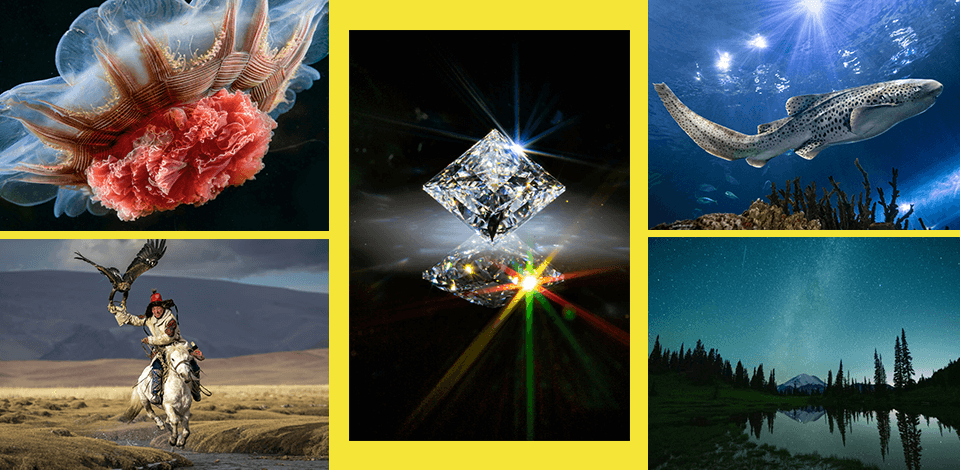
Every year, the National Geographic Photo of the Year contest features the most stunning and culturally significant photos taken by photographers from all corners of the globe. According to Nat Geo, the goal of the "Picture of the Year" contest is to draw attention to aspiring photographers, giving them a proper chance to showcase their talent.
In 2023, over 160 National Geographic photographers from the most far-flung corners of the planet sent in a whopping 2.1 million images. Out of that massive number, only 29 made it to the prestigious Pictures of the Year 2023 collection.
The submitted photos evoked a wide array of emotions - from moments filled with joy and tranquility to honoring traditions, scientific discoveries, and even venturing into the depths of Earth and outer space.
The National Geographic Picture of the Year 2023 gives viewers fascinating sights, from venomous sea kraits in Palau to monarchs wintering in Mexico. The creative team managed to organize a collection that sparks curiosity and deepens our appreciation for the wonders of our world.
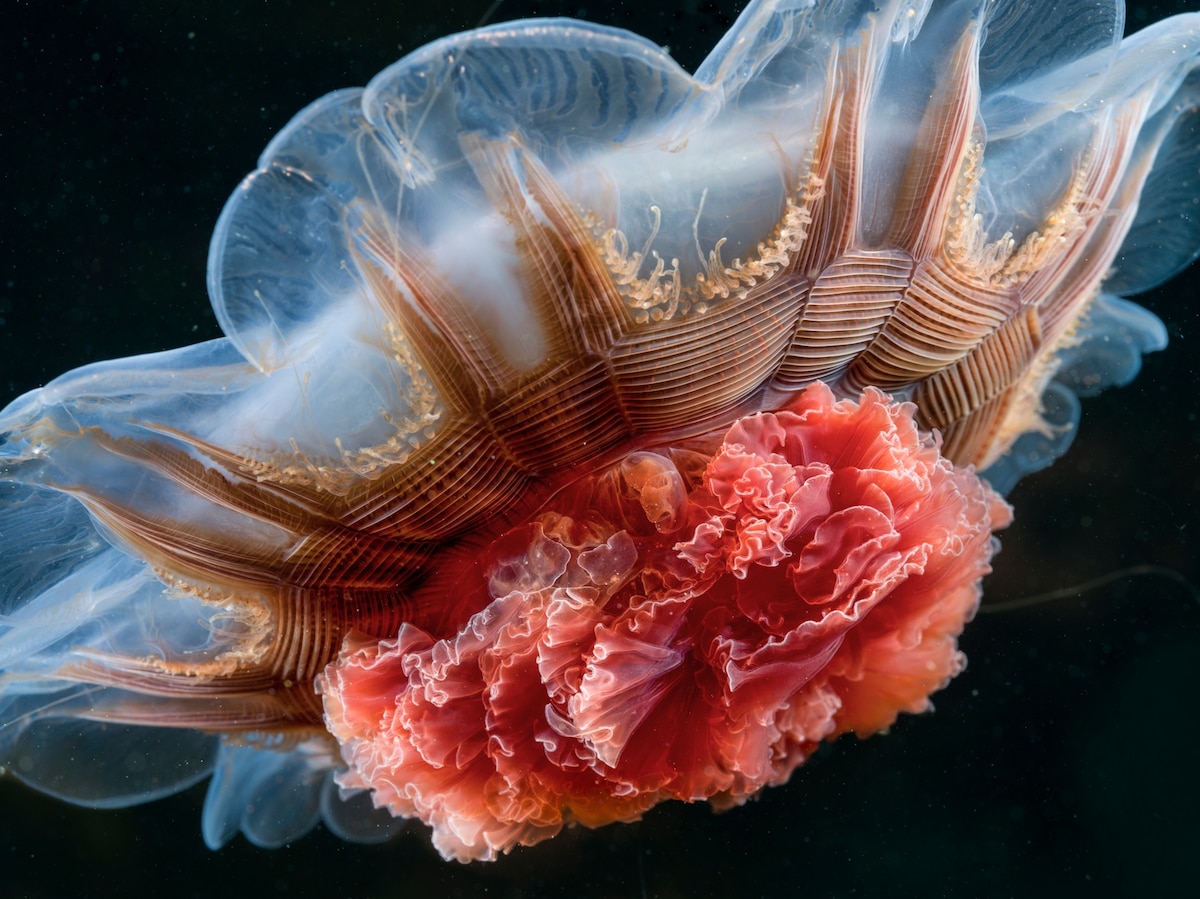
Taken by Alexander Semenov
Marine biologist Alexander Semenov believes the lion's mane jellyfish is the ruler of the Arctic waters. He snapped a photo of this majestic creature during its last moments of life.

Taken by Aitor Lara
As pilgrims travel to the Virgin of Rocío shrine in spring, they take breaks to sing, dance, and enjoy flamenco. Photographer Aitor Lara explains that the songs they sing perfectly capture the enchanting journey of pilgrimage and the happiness of expressing their devotion to the Virgin.

Taken by Jen Guyton
As the sun rises at Lemek Conservancy, spotted hyenas make their way to a pond for a drink. Despite being often misjudged, hyenas are actually tough, clever, and social creatures, living and hunting together in matriarchal groups. Jen Guyton managed to take this up-close shot using a special armored, remote-controlled robot created by the skilled photo engineers at National Geographic.

Taken by Christopher Payne
At the Chiba Kogaku glass factory, workers smash the clay pot around a core of optical glass using sledgehammers. This special glass can handle big shifts in temperature and will later be sliced into slabs.
These slabs will then be sent off to the University of Arizona, where they'll be melted down and shaped into mirrors for big telescopes up in the high-altitude zones. The photographer captured this process, producing one of National Geographic best photos.
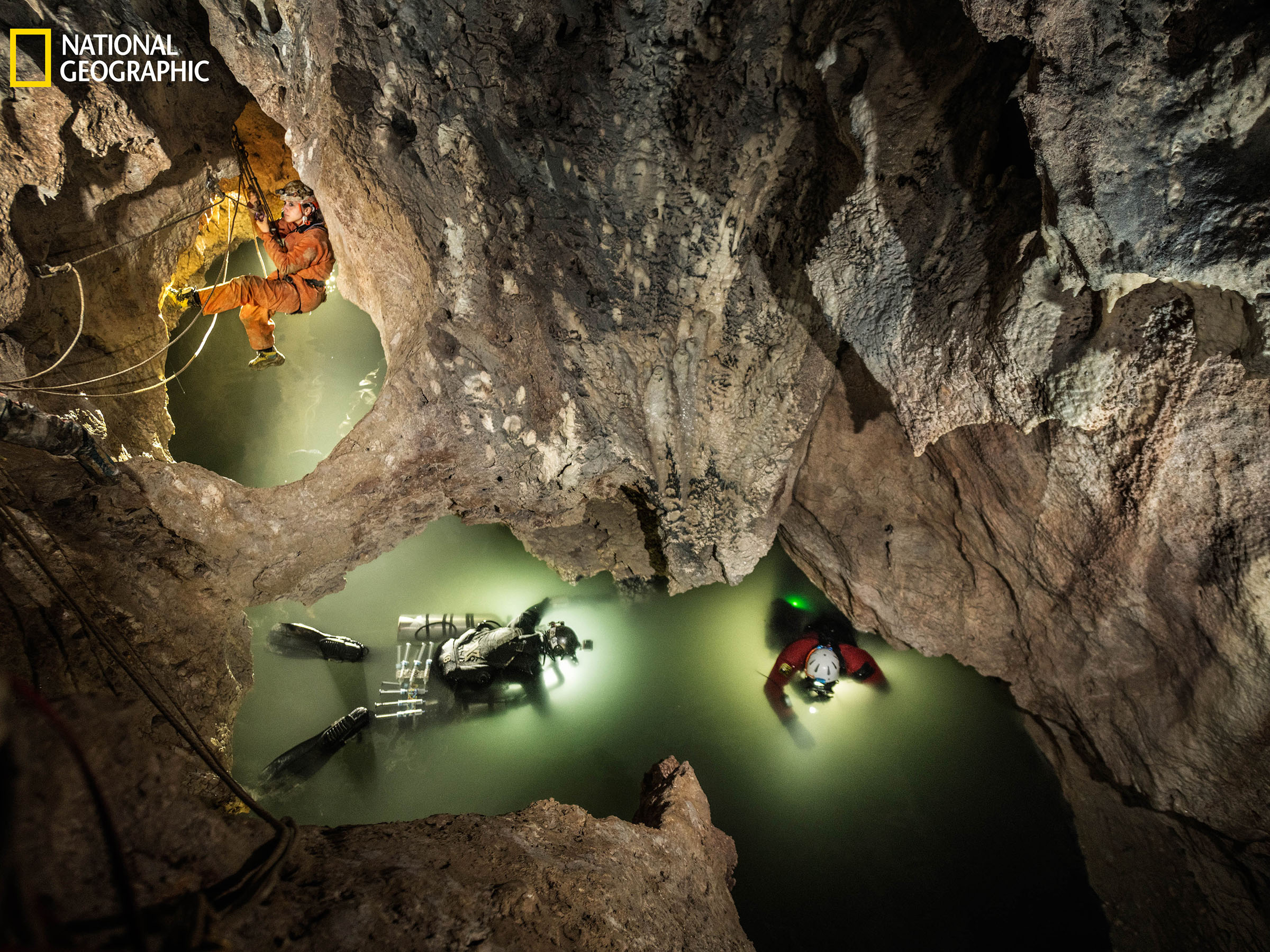
Taken by Carsten Peter
Caver Valentina Mariani (at the top), National Geographic Explorer Kenny Broad (in the middle), and Nadir Quarta are getting ready to dive into the deep, hazardous waters of Lago Verde. These ecosystems, deprived of sunlight, may give us a sneak peek into the chemistry of life in alien seas.
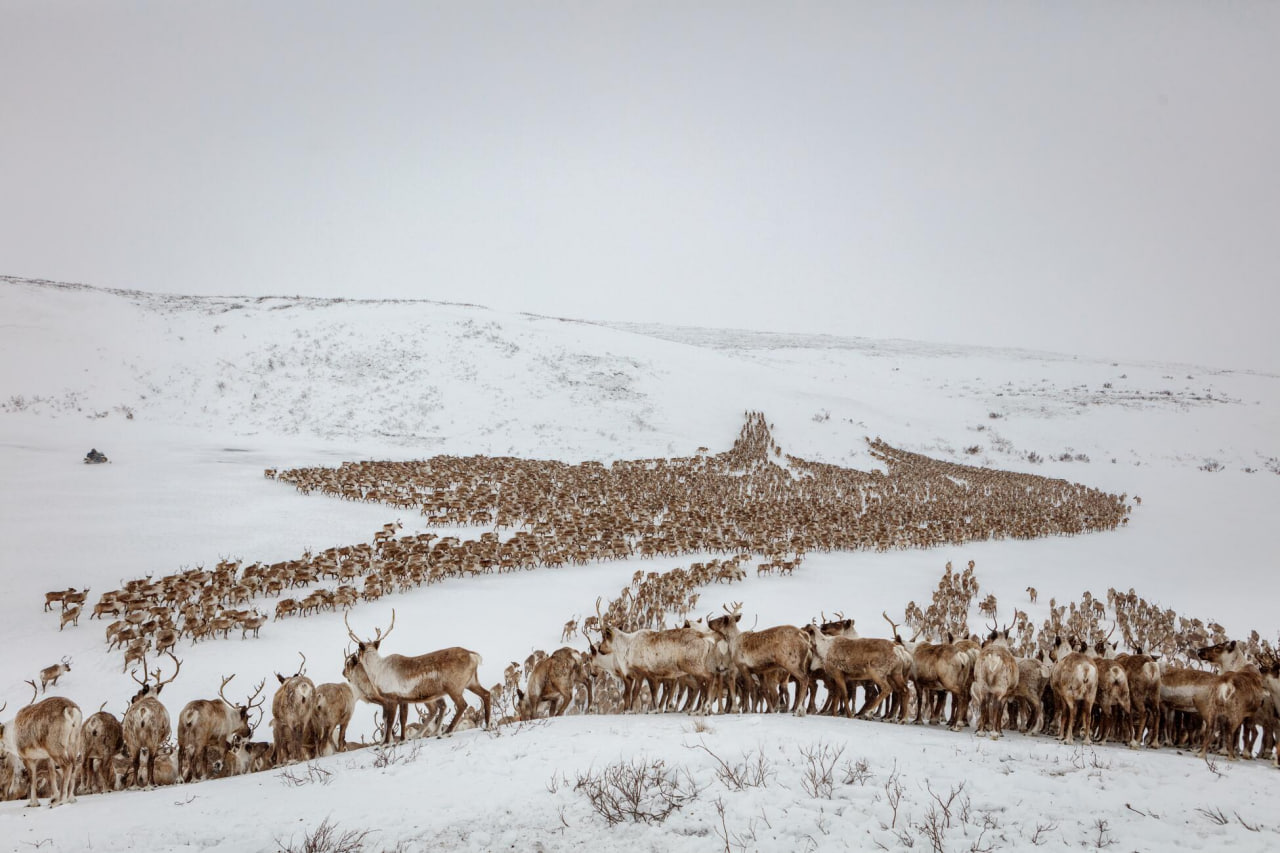
Taken by Katie Orlinsky
Inuvialuit herders are shifting Canada’s final free-range reindeer herd to their birthing grounds. There are approximately 4,000 animals. The Inuvialuit Regional Corporation assumed full ownership of the herd in 2021, aiming to cultivate a sustainable food supply.

Taken by David Doubilet
At Shedd Aquarium, you can spot a magnificent seven-foot-long zebra shark swimming gracefully in one of the exhibits. Shedd, along with other aquariums, is working on breeding endangered zebra sharks to collect eggs destined for Indonesia. Once there, these eggs will be nurtured and eventually set free in a protected marine zone in Raja Ampat. This is done to bolster the dwindling wild population of these sharks.
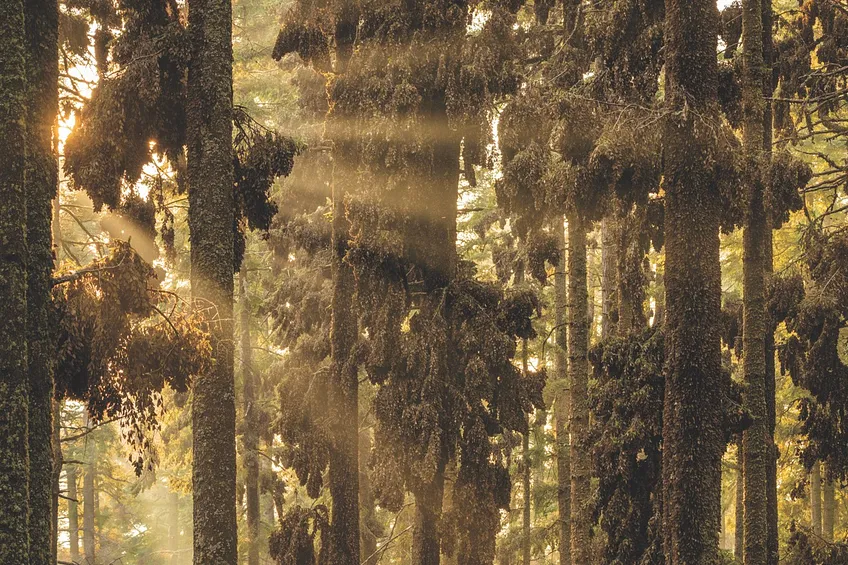
Taken by Jaime Rojo
In El Rosario Sanctuary, the fir trees are covered with beautiful monarch butterflies, soaking up the winter sunlight and huddling together to stay warm. Photographer Jaime Rojo was granted special permits to capture this enchanting scene outside the sanctuary's usual hours. He snapped this photo just before the sun dipped below the horizon.

Taken by Kiliii Yuyan
A banded sea krait is heading towards the surface of the ocean to take a breath.
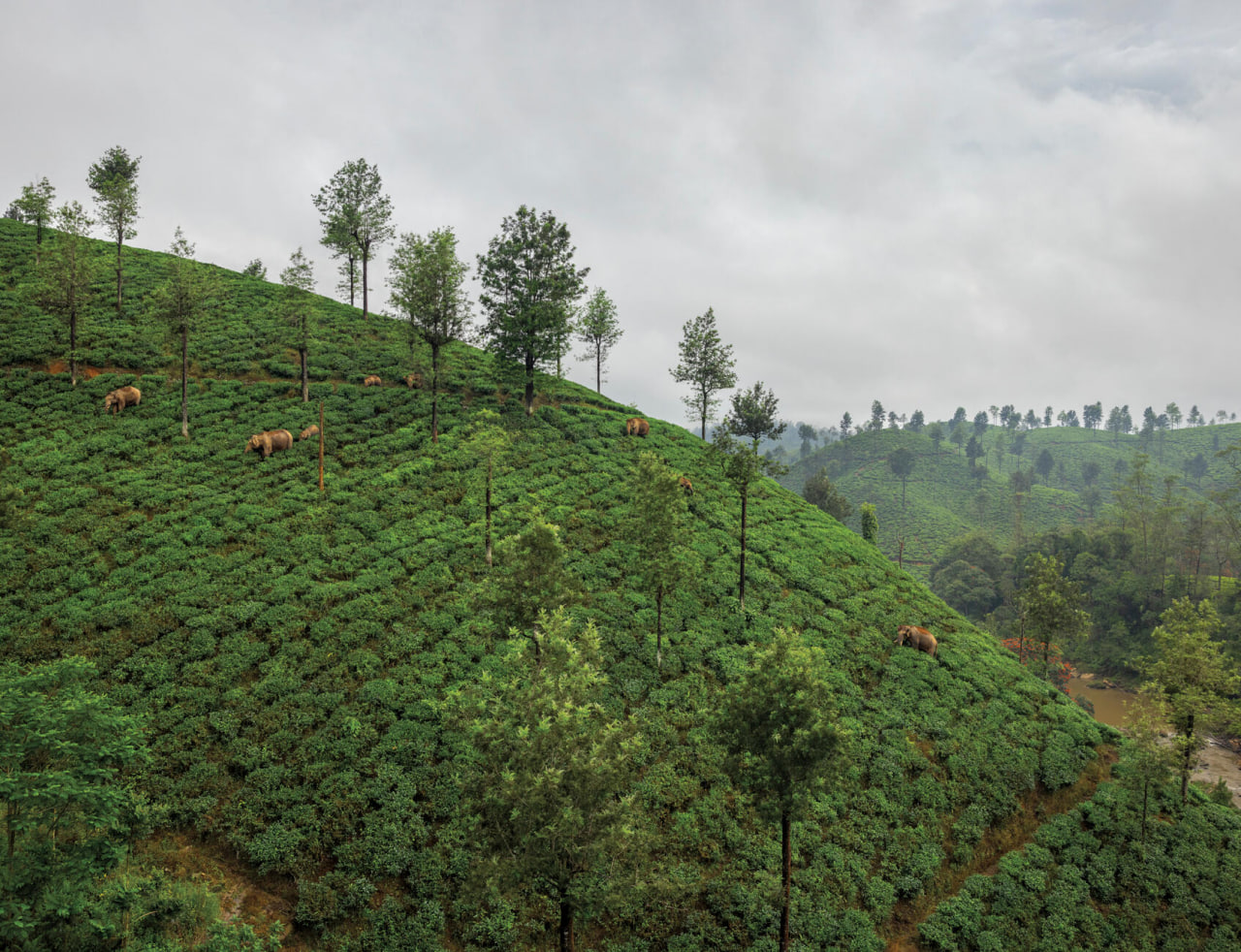
Taken by Brent Stirton
Elephants roam around a tea estate that used to be their natural forest habitat until it was turned into farmland for crops back in the late 1800s. Nowadays, approximately 70,000 people reside and work in this area alongside about 120 elephants.
In 2022, 132 photographers from 60 countries submitted a total of 2.2 million images. Out of that massive collection, organizers selected 49 famous National Geographic photos.
Online edition also features videos and a series of tips from top Nat Geo photographers to help audiences take better pictures, including wildlife, portrait, nighttime and underwater photographs.

Taken by Carsten Peter
In September 2021, there appeared cracks in La Palma’s Cumbre Vieja ridge. They triggered one of the most devastating volcanic eruptions in the Canary Islands in 500 years. Carsten Peter arrived shortly afterward to report on the event, marking it as the 10th volcano he'd captured for the magazine. He took on the photography challenge and documented the 85-day eruption for National Geographic.

Taken by Dan Winters
Photographer Dan Winters had to wait several hours for the thick fog to lift and capture a moment of the Space Launch System rocket for Artemis I. This uncrewed test aims to send a new space capsule named Orion on a journey to orbit the moon for a period of 6 to 19 days before returning to Earth.
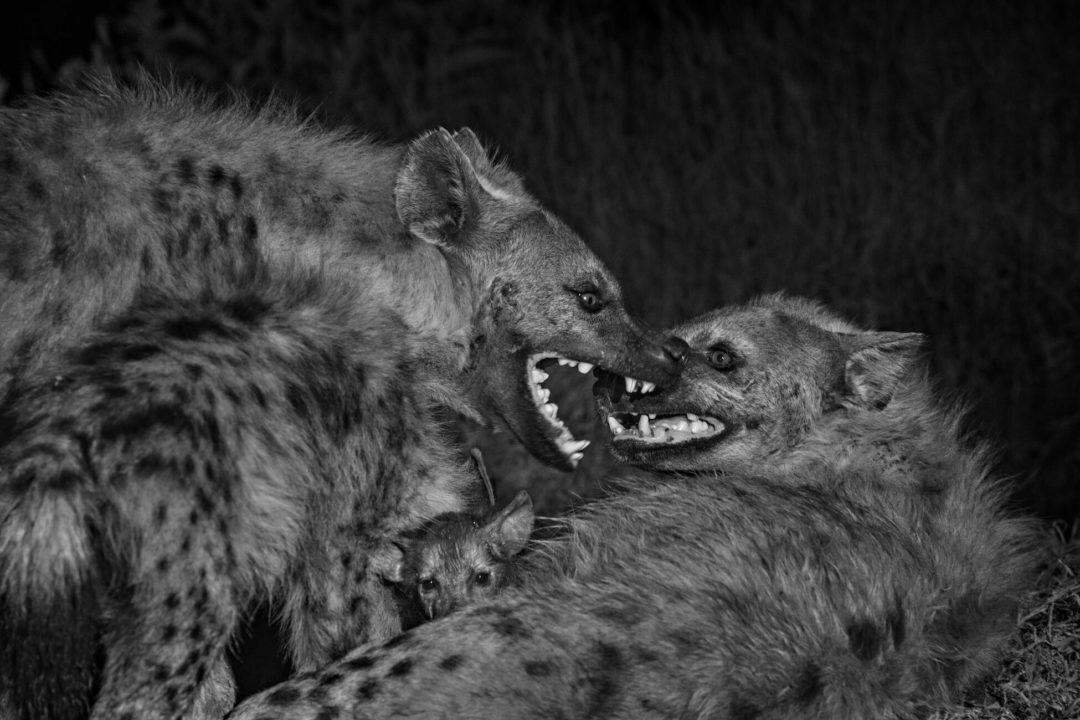
Taken by Jen Guyton
At night, with an infrared camera, scientists snapped a pic of a spotted hyena they dubbed Palazzo. She's there, grinning submissively and flattening her ears back, while Moulin Rouge, the big female dominant of the clan back then, looms over her.
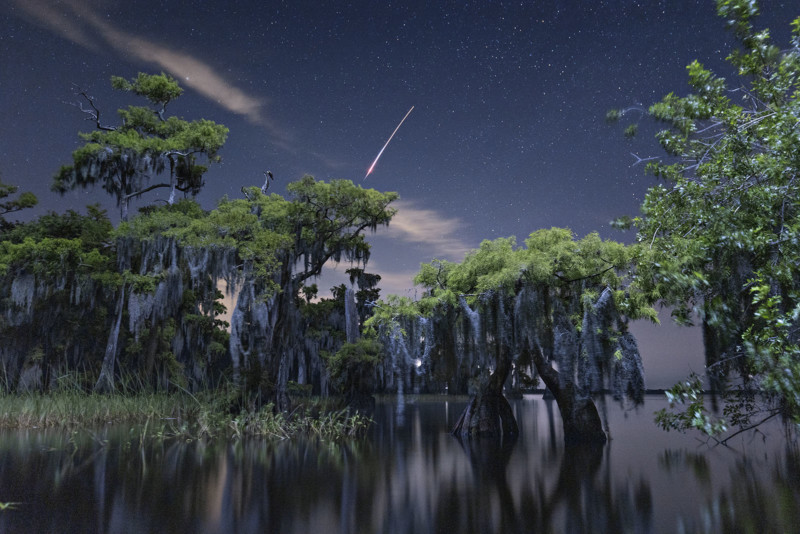
Taken by Mac Stone
It was like a dream come true, witnessing that amazing SpaceX rocket launch from a tranquil Florida swamp. Photographer Mac Stone was just chilling out there, in what Farrar calls his happy spot, snapping pics of the peaceful scenery in the dead of night. Suddenly, he noticed this bright thing streaking across the purple sky.
Taken by Brent Stirton
Over on this island, wild Asian elephants are kicking it with some cows at a dump. There are around 6,000 elephants sharing space with people. Photographer Brent Stirton needed to snap pics to show how these elephants and humans are getting along together.
Since it started way back in 1888, the National Geographic Society has been leading the way in storytelling. Even before they started putting photos on the covers, the magazine was all about sharing impressive narratives that really pull you in, including those powerful pictures that tell a story.

Taken by Steve McCurry
This is probably the most iconic photo of National Geographic. Steve McCurry took it in 1984, capturing an Afghan girl in a refugee camp in Pakistan. It almost slipped by unnoticed until an editor plucked it from a pile and decided to put it on the cover of the June 1985 issue.
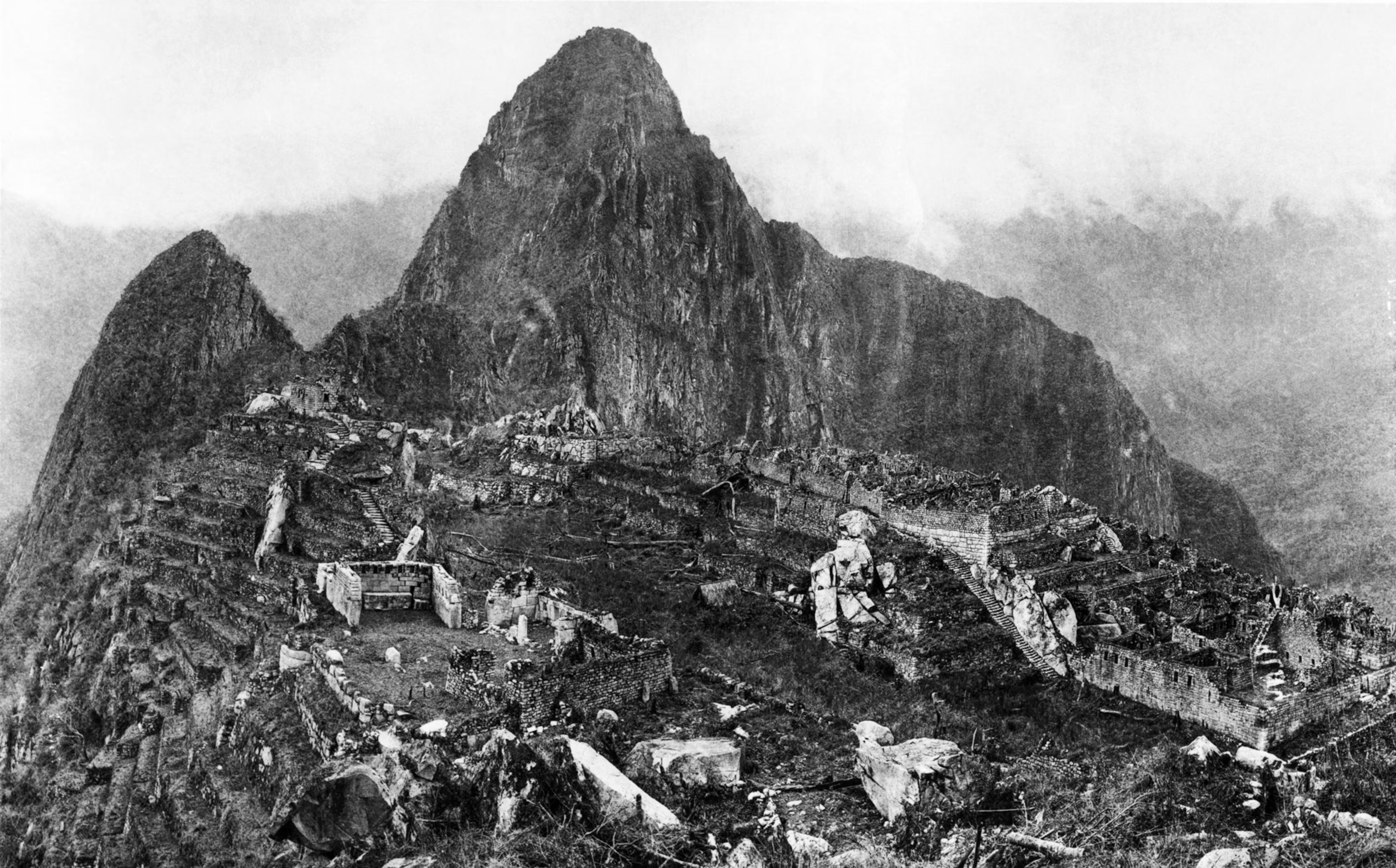
Taken by Hiram Bingham
In 1913, Hiram Bingham went looking for a high vantage point to get a glimpse of Machu Picchu in Peru. This hidden Inca city nestled on a mountaintop was where Bingham was searching around between 1912 and 1915. Later, it became one of the most noteworthy National Geographic images of the year.

Taken by Luis Marden
Taken in 1939, the photo depicts a cowgirl in El Paso, Texas, putting a nickel in a parking meter to tie up her pony. Back then, El Paso was still home to plenty of people who lived and worked on ranches.
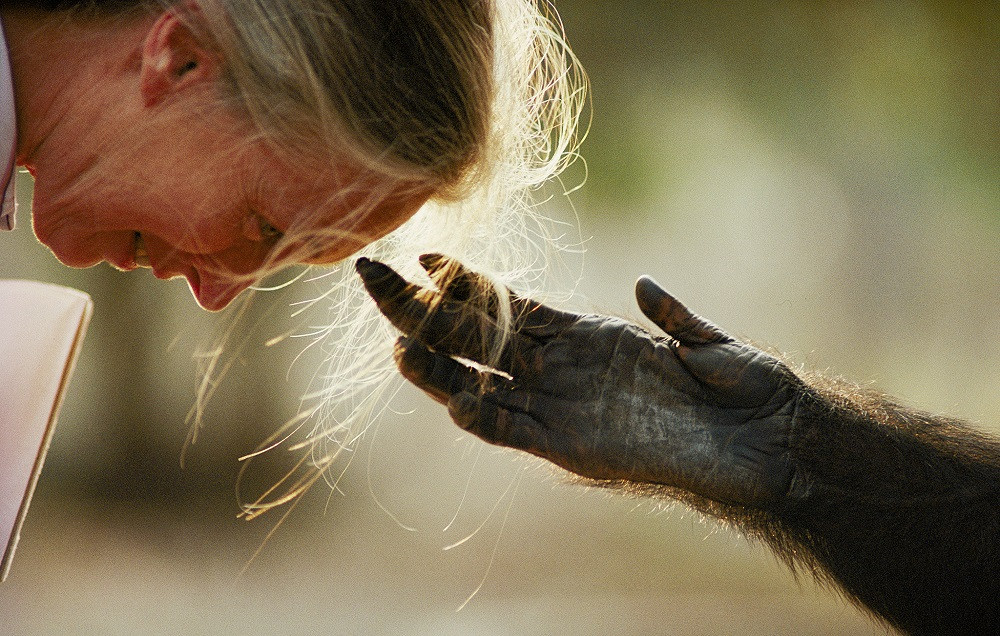
Taken by Michael Nichols
In this photo, taken around 1990, a captive chimpanzee named Jou Jou is reaching out to Dr. Jane Goodall in a zoo in the Republic of Congo.

Taken by John Stanmeyer
Back in 2008, there was a heated protest in Giza, Egypt, as people were angry about sky-high food prices at a kiosk selling government-subsidized bread. You may notice the iconic Great Pyramid of Giza standing tall in the background.

Taken by Paolo Pellegrin
Two young girls from a village in the Israeli West Bank are taking a dip and cooling off in the salty waters of the Dead Sea. The picture was taken in 2009 and the water level of this inland sea has dropped more than 70 feet since 1978.

Taken by Stephen Wilkes
Stephen Wilkes created the "Day to Night" series, demonstrating the changing scenery of a single location over time by layering images. He and his assistant spent 26 hours on a platform 18 feet above a watering hole in Serengeti National Park, taking shots by hand. Eventually, they got 2,200 pictures.
Next, they carefully selected the best ones and assembled them into a composite image that illustrates the transition from night to day.

Taken by Nick Nichols
The photo features southwestern Gabon and a forest elephant casually strolling along the shores. Ecologist Michael Fay decided to take on an incredible adventure, trekking over 2,000 miles across central Africa. He wanted to observe the pristine wilderness that still exists.
Fay traveled with a photographer Nick Nichols, who took some truly remarkable shots of their journey. These images played a significant role in nudging the Gabonese government to establish 13 national parks in 2002.

Taken by John Stanmeyer
In 2013, writer Paul Salopek set out on an incredible journey covering 21,000 miles across four continents. His aim was to map out 60,000 years of human migration. Photographer John Stanmeyer accompanied him at the beginning of his trip.
During this journey, Stanmeyer took one of National Geographic best photos – a group of Somali migrants packed tightly on the shores of Djibouti City, all vying for a chance to catch a cheap cell signal.
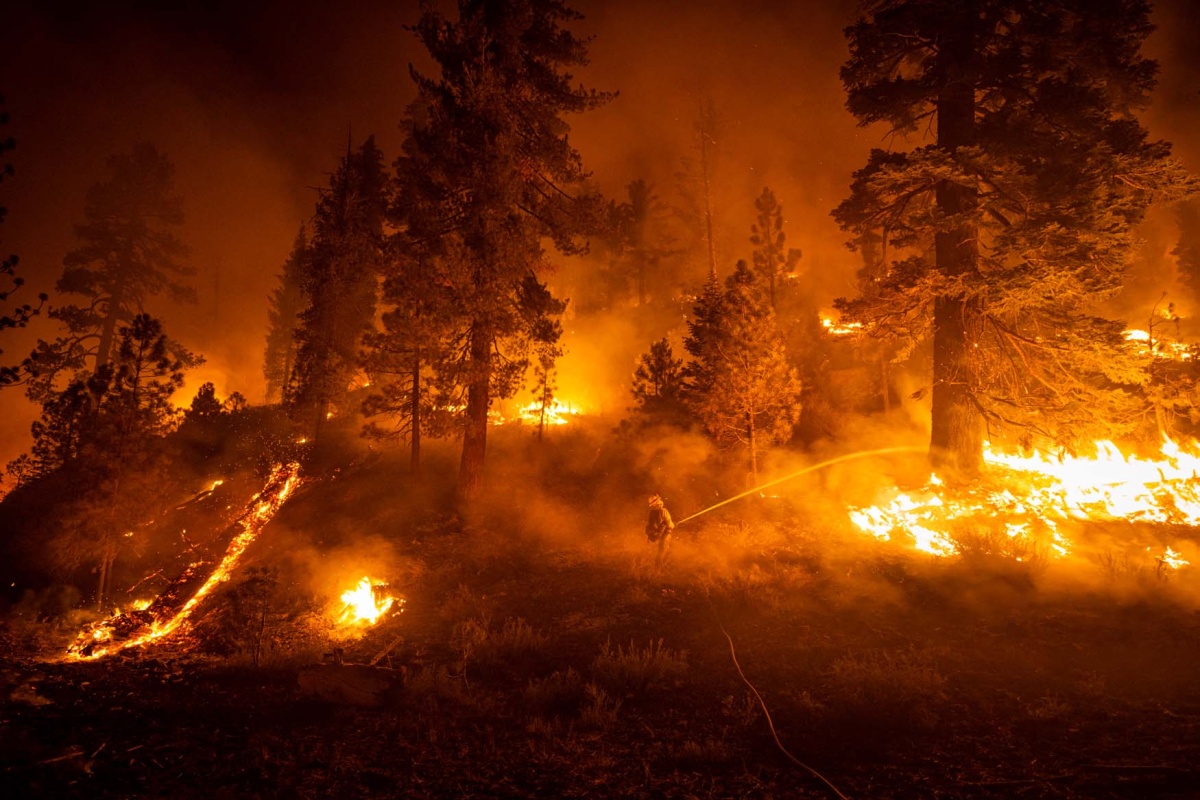
Taken by Lynsey Addario
Throughout 2021, firefighters in western North America had to control raging wildfires. Among them, the Dixie fire in California blazed through almost a million acres. It was the state's second-largest wildfire on record. Photographer Lynsey Addario drew parallels between her work documenting these destructive wildfires and the global conflicts she has long focused on in her career.

Taken by Kiliii Yüyan
Quannah Rose Chasinghorse, representing her Hän Gwich’in and Sičangu/Oglala Lakota roots, raises her fist as a tribute to the bravery and endurance of her ancestors who survived genocide and never gave up. This model and activist graced the cover of the July 2022 issue, shedding light on the ongoing movement for Native sovereignty.
Kiliii Yüyan, the photographer behind the cover story, produced this impactful portrait as a means of breaking away from entrenched narratives that portray Indigenous people solely as victims.